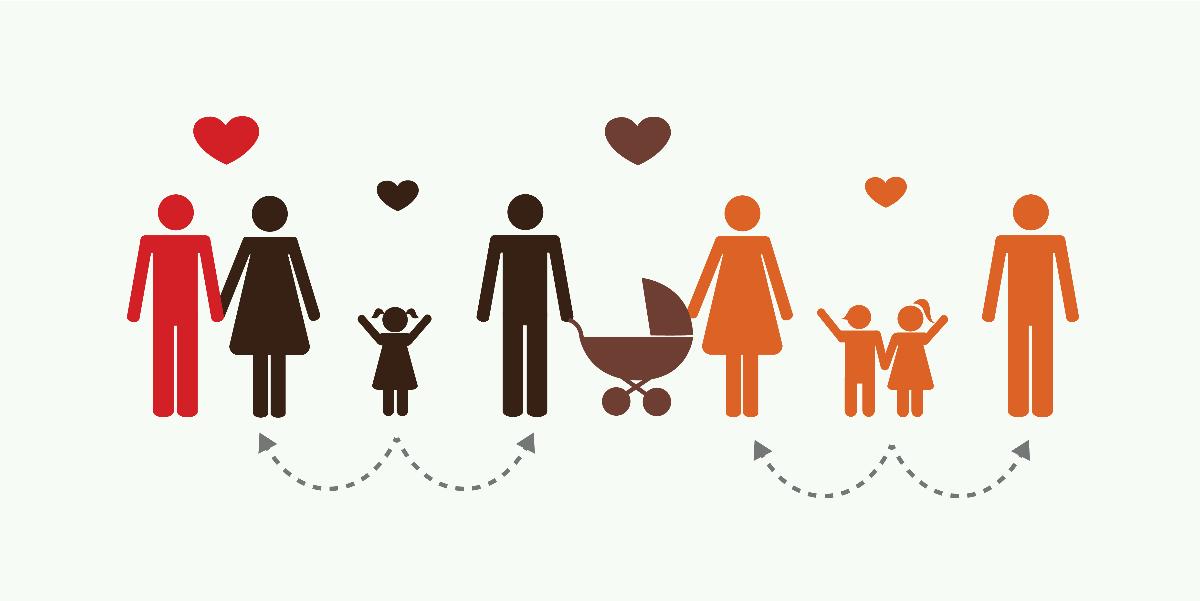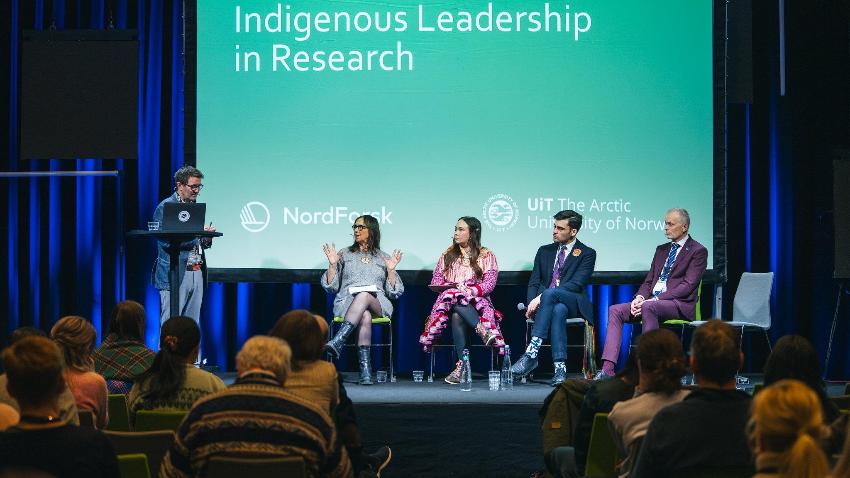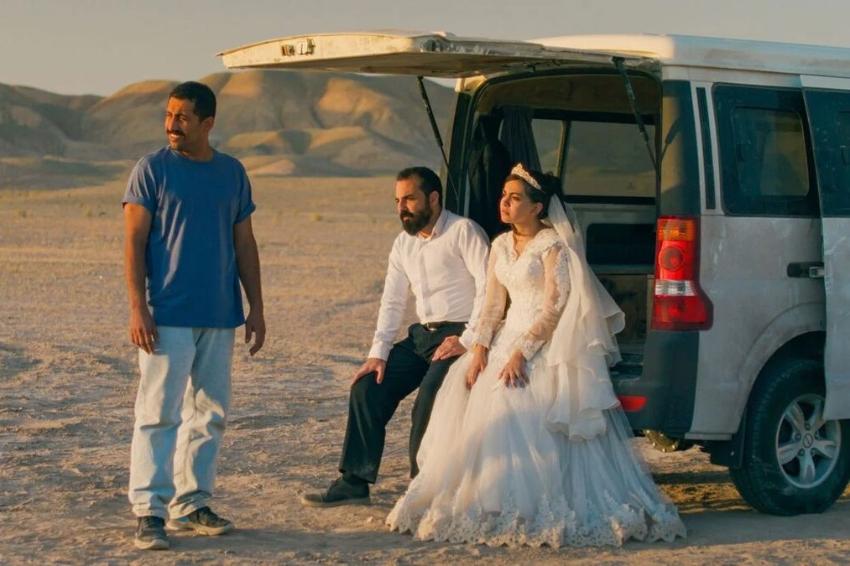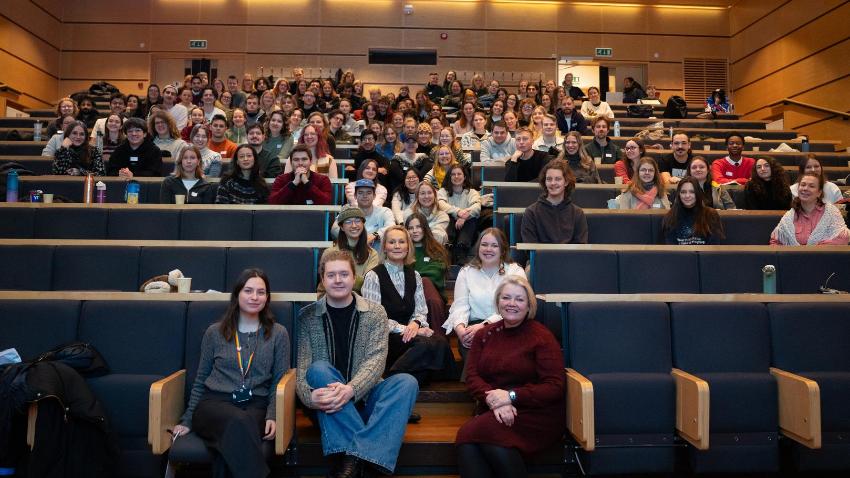Unraveling Family Legality with Ida
Analyzing the protection of Children's right to family life.

Ida Jørgine Bendiksen is a PhD Research Fellow at the UiT – Faculty of Law, and a member of the Research Group on Child Law. In her doctoral project, she examines the legal frameworks and implications of children's right to family life under the Norwegian Constitution, Article 8 of the European Convention on Human Rights, as well as the UN Convention on the Rights of the Child.
“I will, among other things, analyse which personal relationships that are legally protected under children’s right to family life”, she explains.
Ida points out that neither under the ECHR nor Norwegian law is there a legal definition of what constitutes a family.
Adapting the Legal Family to Modern Realities?
She notes that the concept of family has evolved from being based on a nuclear family consisting of mother, father, and children, to a more flexible concept that comprises various different family constellations.
“Today's legislation mainly focuses on the nuclear family, which in some cases creates legal problems for other types of families”, she points out.
She explains to us that recent Norwegian case law may suggest that the Children Act is inadequate in today's society, which the courts seem to address by going the way around Article 8 of the ECHR.
“The question then becomes how the family is legally defined according to the European Convention on Human Rights and the Constitution; does it include, for example, siblings, stepsiblings, foster parents, or stepparents”, Ida asks rhetorically.
Challenges and implications
One challenge for the project is that the practice of the European Court of Human Rights, as well as Norwegian courts, is mainly based on cases brought by parents and other adults.
“Due to this, the right to family life is often seen as a right for adults, which means that children's own right to family life takes a back seat”, Ida asserts.
Another challenge is that children's human rights as a field is very comprehensive and dynamic, where many different considerations have to be taken, and more or less mutually compatible rights have to be balanced at all times.
“One can imagine that it would be conflict-generating if too many personal relationships enjoy legal protection, which in turn may not necessarily be in the best interest of the child”, she reflects.
During the doctoral period, she expects a new Norwegian Children's Act to be adopted.
“Already in the preparatory works, we see signs that a new law will focus more on the child's right to family life”, she concludes.
Ida hopes that her research will contribute to a better understanding of which relationships are included in children's family life as a legal right, and what that entails. Additionally, she wants to contribute to improving the protection of children's rights associated with family life children in Norway.
Kortnytt fra Faculty of Law
-
Fiskeri- og havbruksvitenskap - bachelor
Varighet: 3 År -
Fiskeri- og havbruksvitenskap - master
Varighet: 2 År -
Master of Philosophy in Visual and Multimodal Anthropology
Varighet: 2 År -
Arkeologi - master
Varighet: 2 År -
Peace and Conflict Transformation - master
Varighet: 2 År -
Indigenous Studies - master
Varighet: 2 År -
Technology and Safety - master
Varighet: 2 År -
Biologi - bachelor
Varighet: 3 År -
Rettsvitenskap - master
Varighet: 5 År -
Sosiologi - master
Varighet: 2 År -
Strategisk ledelse og økonomi - erfaringsbasert master
Varighet: 5 Semestre -
Engelsk - årsstudium
Varighet: 1 År -
Samfunnsplanlegging - bachelor
Varighet: 3 År -
Pedagogikk - bachelor
Varighet: 3 År -
Sosiologi - bachelor
Varighet: 3 År -
Arkeologi - bachelor
Varighet: 3 År -
Spansk - årsstudium
Varighet: 1 År -
Statsvitenskap - bachelor
Varighet: 3 År -
Pedagogikk - master
Varighet: 2 År -
Likestilling og kjønn - årsstudium
Varighet: 1 År -
Samfunnsplanlegging - master
Varighet: 2 År -
Økonomi og administrasjon - bachelor
Varighet: 3 År -
Samfunnssikkerhet - bachelor
Varighet: 3 År -
Økonomi og administrasjon, siviløkonom - master
Varighet: 2 År -
Ledelse, innovasjon og marked - bachelor
Varighet: 3 År -
Ergoterapi - bachelor
Varighet: 3 År -
Grunnskolelærerutdanning for 1.-7. trinn - master
Varighet: 5 År -
Grunnskolelærerutdanning for 5.-10. trinn - master
Varighet: 5 År -
Samfunnssikkerhet - master
Varighet: 2 År -
Kunst - bachelor
Varighet: 3 År -
Kunsthistorie - master
Varighet: 2 År -
Musikkutøving - bachelor
Varighet: 4 År -
Religionsvitenskap - årsstudium
Varighet: 1 År -
Russisk - årsstudium
Varighet: 1 År -
Samfunnsøkonomi med datavitenskap - bachelor
Varighet: 3 År -
Sosialantropologi - bachelor
Varighet: 3 År -
Organisasjonsdesign og ledelse - master
Varighet: 2 År -
Statsvitenskap - master
Varighet: 2 År -
Historie - master
Varighet: 2 År -
Kunsthistorie - bachelor
Varighet: 3 År -
Tysk - årsstudium
Varighet: 1 År -
Filosofi - bachelor
Varighet: 3 År -
Kvensk - årsstudium
Varighet: 1 År -
Barnehagelærer - bachelor
Varighet: 3 År -
Forfatterstudium 2 - årsstudium
Varighet: 1 År -
Barnevern - bachelor
Varighet: 3 År -
Sosialt arbeid - bachelor
Varighet: 3 År -
Bedriftsøkonomi - årsstudium
Varighet: 2 År -
Ledelse - årsstudium
Varighet: 2 År -
Sosialt arbeid - master
Varighet: 2 År



